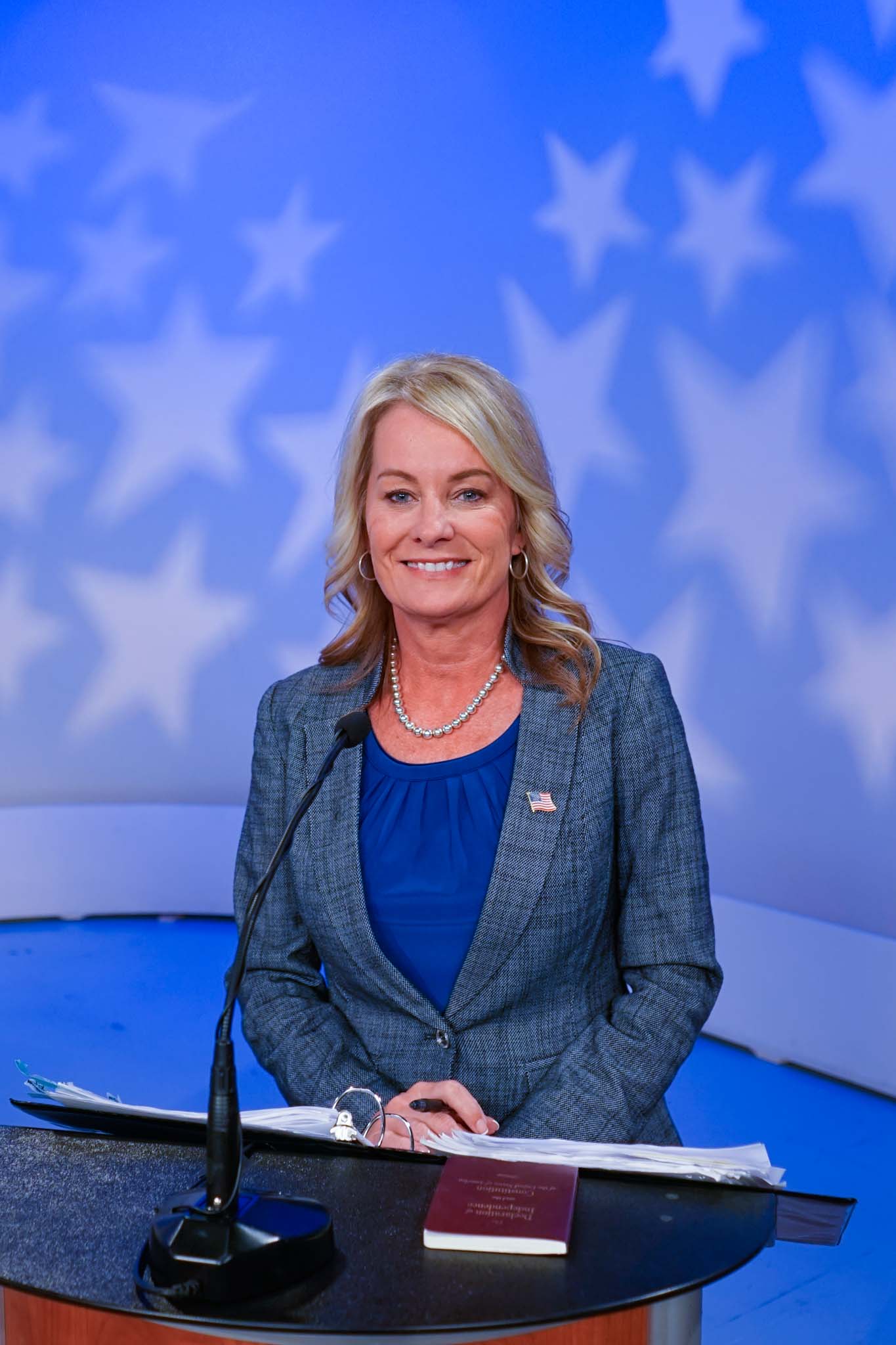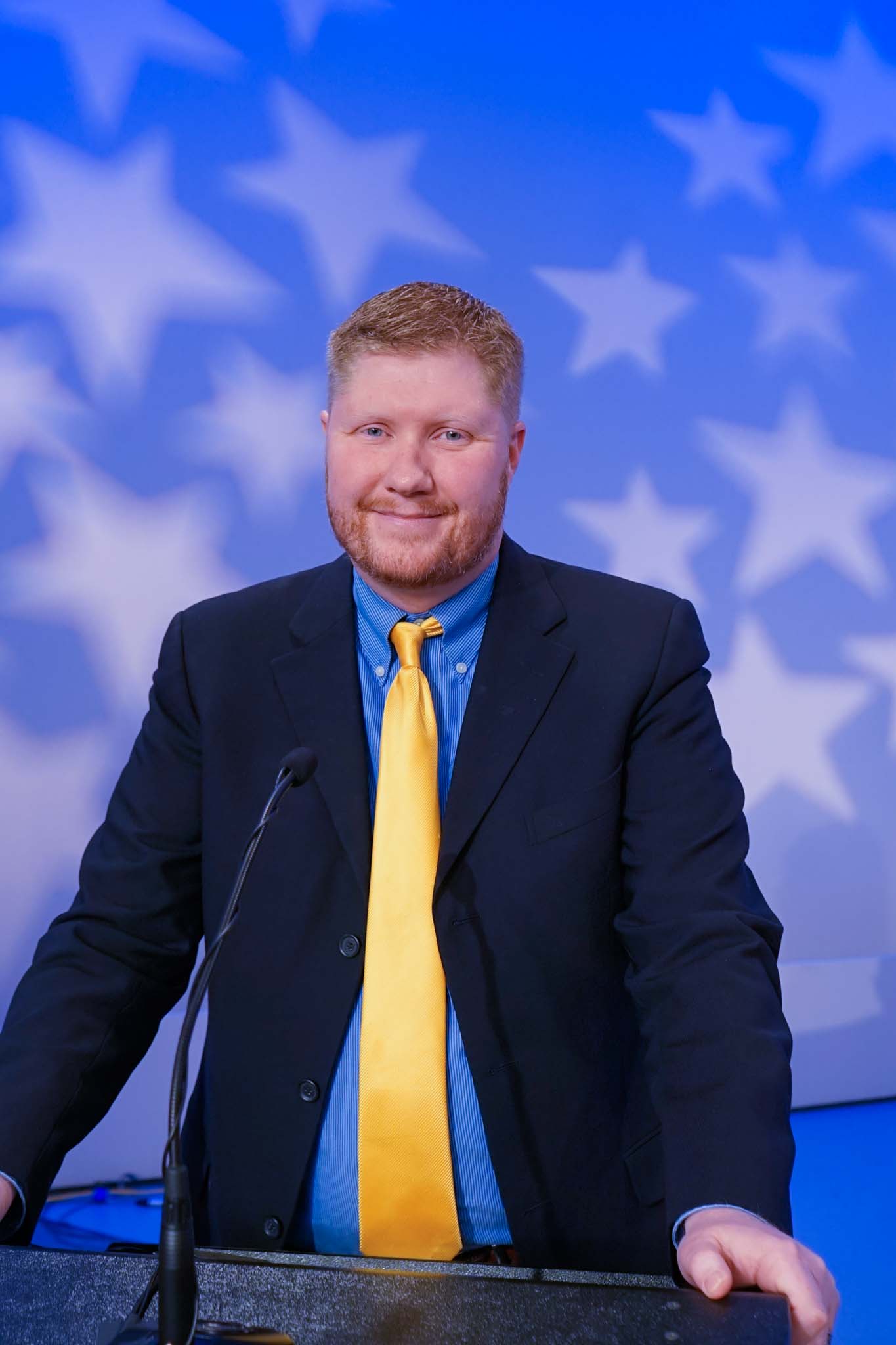This one isn’t on the politicians.
If you don’t have a clue about the Republican candidates for state schools superintendent, you can’t blame them.
After at least six joint appearances — including two televised debates this week — incumbent Sherri Ybarra and challengers Debbie Critchfield and Branden Durst have shown voters what they can expect. They’ve discussed their positions and displayed their temperaments.

Sadly, in 2022, this race has been an election outlier. This year, too many candidates have concocted contorted arguments against stepping on a stage and fielding questions from journalists. Ybarra, Critchfield and Durst are basically doing what voters should expect from their job applicants, but they do deserve some credit.
This week’s debates gave the three candidates in the May 17 GOP primary the chance to frame themselves, and all three did that ably. Ybarra, the seven-year incumbent, spent much of her airtime touting her prior experience in the classroom. Critchfield tried to position as a “change candidate,” while leaning on her seven years’ experience on the State Board of Education. Durst — the Democratic legislator turned conservative hardliner — played heavily toward right-wing Republicans.
Voters got a chance to hear some real distinctions on important issues. Generally, this allowed Durst to play to his outsider’s theme. On Monday night’s Idaho Public Television debate, he said critical race theory has “infested” Idaho schools, and said teachers who indoctrinate students should be fired. A night later, on KTVB TV, Durst took Ybarra to task for proclaiming the demise of the Common Core standards — in part, because the Common Core-aligned Idaho Standards Achievement Test remains in place.
The clashes between Ybarra and Critchfield are a little bit more subtle, but still important. They come down to leadership and direction — important in overseeing a school system serving 300,000 students, and a State Department of Education with more than 120 staffers. Repeatedly, Critchfield voiced a dissatisfaction with a lack of direction in Idaho education, a general complaint without a lot of concrete detail. Ybarra painted a picture of an improving education system — buttressed with some selective numbers on graduation rates and college and career readiness.
Yes, things got chippy and snippy at times.
- Using her teacher’s voice, Ybarra scolded Critchfield for interrupting her Monday night, and gave Durst the same admonishment Tuesday. No erasers were thrown, in either case. But there was nothing lighthearted as Ybarra repeatedly accused Critchfield and Durst of not understanding the superintendent’s job.
- With increasing frustration, Critchfield criticized Ybarra for citing national education rankings without putting them in context — and accused Ybarra of taking credit for education initiatives that she didn’t work on.
- On Tuesday night, Durst and Critchfield went after each other over campaign dollars. Critchfield insinuated that Durst’s contributions to local campaigns have gotten him support from county GOP committees; “I don’t know if he’s paying for those endorsements, or how that works.” Durst fired back at Critchfield, who holds a large fundraising edge in the race; “You’ve got plenty of people who are buying your support.”

But these exchanges are an essential ingredient of a good political debate. A televised, unscripted event lets voters see how candidates react to pressure and pushback. It’s up to the voter to decide if a candidate is being scrappy, or snarky. That’s how the process ought to work.
No one debate is going to be all things to all voters. It’s also unlikely that any candidate walks away from a debate completely satisfied.
On Tuesday, Durst took to Twitter to complain about the Idaho Public TV debate, and the “gotcha” questions from the reporter panel. (Full disclosure: I was one of the three reporters on that panel.)
Durst — who served in the Idaho Legislature as a Democrat until 2013, ran for the Washington Legislature as a Democrat in 2016, ran in a nonpartisan Boise School Board election in 2018, and now is running for statewide office on the GOP ticket — took issue with me asking if he is a political gadfly. Durst took me to task for failing to ask Critchfield about her campaign treasurer Michael Arrington, and his ties as board chairman to two Magic Valley charter schools, which closed last year amidst a state investigation over finances.
(Here’s that backstory: In September, Critchfield told Idaho Education News that she was aware of the questions of state overpayments to the schools before she named Arrington treasurer, but said she wasn’t concerned about his role with the schools.)
Certainly, an Arrington question is fair game. By the same token, reporters could have asked Durst about a contempt of court ruling against him, which went public Tuesday. Or reporters could have asked Ybarra about last year’s $150,000 whistleblower settlement with SDE staffer Kelly Brady, who is now a Critchfield supporter.

Or reporters could have asked any of the other education policy-related questions that didn’t make the cut this week. Trust me; it was a long list.
Ultimately, the good news here is that voters heard answers to the questions that time did allow. And that these three superintendent’s candidates made a point of participating in debates. They have also made time for other forms of voter engagement — such as filling out Idaho Education News’ in-depth candidate questionnaire, which published Thursday.
It’s been a bad year for the political debate in Idaho, with candidates bowing out for a variety of unpersuasive reasons. Lieutenant governor’s candidate and state Rep. Priscilla Giddings said she wouldn’t show unless she knew which reporters would be asking the questions. U.S. Rep. Mike Simpson decided, unilaterally, that voters had heard enough from his GOP opponent, Bryan Smith.
And Gov. Brad Little decided that 39 months on the job renders his resume “non-debatable.”
“In past election cycles, I didn’t have the record I have now,” Little said, in an Idaho EdNews podcast released Thursday. “My actions speak louder than a short snippet somewhere.”
Think this argument through, as I tried to while interviewing Little Tuesday. If you play it out, it means incumbents should be held to a lower standard when it comes to participating in a debate. As opposed to, maybe, a higher standard? Or maybe just equal footing?
Surely, some debate viewers have short attention spans. Some come for the gotcha moment. Some listen for a snippet.
But others listen for substance.
At least the superintendent’s candidates gave voters something to listen to. This should happen more often.
Kevin Richert writes a weekly analysis on education policy and education politics. Look for his stories each Thursday. A veteran political reporter, Richert participated in his first statewide candidates’ debate in 1994.
More reading: Click here to check out our superintendent candidates’ questionnaire.
